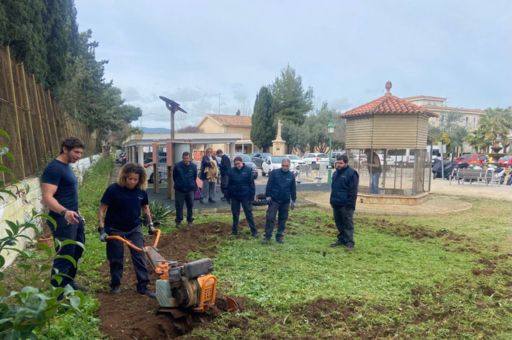The IMAS organises this training that combines theory with a practical and paid part oriented to inclusion, improvement of autonomy and personal development, taking a step further towards equal opportunities.
To promote the social and labour insertion of people with intellectual disabilities by exploring in depth all aspects related to their environment, skills and aspirations, to enable them to access stable, qualified jobs in line with their particular interests. This is the aim of the Eines course, which has been organised for 11 years by the Consell de Mallorca through the Institut Mallorquí d’Afers Socials (IMAS).
TDB keeps you informed. Follow us on: Facebook, Twitter and Instagram
The course Eines of the Consell de Mallorca addressed people with functional diversity
A total of 6 students, aged between 18 and 50, have started a new edition of this training, which lasts 9 months and combines a theoretical part with a practical and paid part that is carried out in other IMAS centres, programmes or services. ‘Working in a network with other community services, as we do with the Eines programme, allows us to establish a range of different benefits and services around the user. This course proposes a training and work itinerary for people with functional diversity through an activity that is not offered by third social sector entities and which benefits both the students, who are trained and work in a field they like and have chosen, and the administration itself, since the maintenance or improvement tasks are carried out in our centres or in the homes of people who are users of our other services, such as the Comprehensive Home Care Service (SAID), who have few economic resources and need to carry out adaptation or maintenance work in their homes’, emphasised the councillor for Social Welfare and president of IMAS, Guillermo Sánchez.
IMAS organises an annual call for this course which ‘offers training in a different line to those usually offered in the specialised training market for people with disabilities, such as cooking, agriculture or cleaning. Maintenance tasks are in great demand and people with disabilities are perfectly capable of carrying them out,’ explained Maria Francesca Rigo, the island’s director of People with Disabilities.
The training team is made up of a social educator an educator, who works on job orientation, and a workshop teacher, in charge of specific training. Specifically, they work on the modules of electrical maintenance, plumbing, construction, carpentry, gardening, orientation and occupational hazards. Once the students have acquired the minimum skills, the practical part begins.
The course, which also includes psychosocial monitoring of the participants, equips the students with the necessary skills to be able to access the labour market by obtaining a diploma accrediting the hours studied and the subjects covered.
